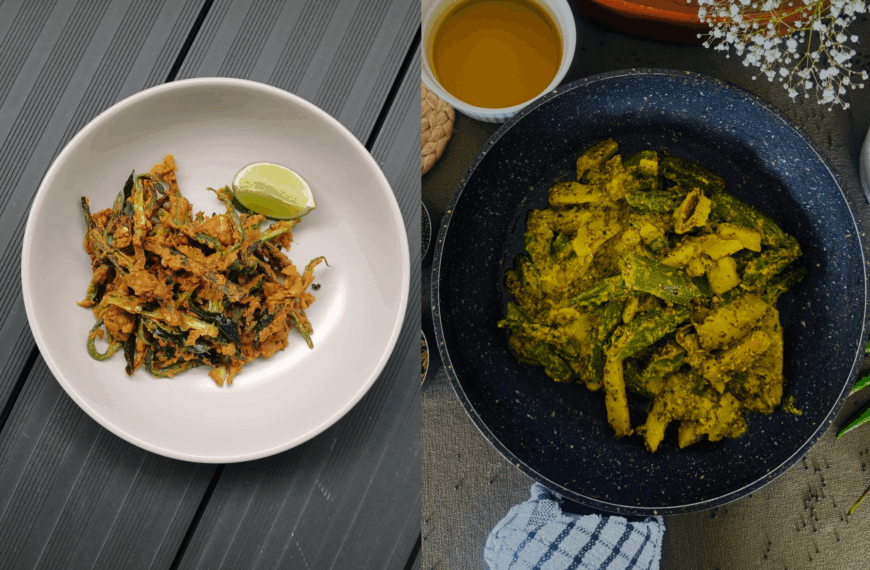Dr Roopali’s Lakshadweep adventure exposes paradise’s hidden side: poverty, displacement, and a silent community’s fight. Beauty and bittersweet truths collide in this Different Truths exclusive.
All night, I watched the moon shine on the shimmering emerald sea. It peeped at me through the porthole. The ship was cruising along the Lakshadweep archipelago. That is where I had longed to be for a long time. Far, far away. Mysterious and impossible.
The ship ploughed on through the night. It was November 2023.
Morning found us in long queues. It was a day tour of the islands. We waited for our turn to jump into boats that rocked maddeningly and endlessly. We were going to the island of Agatti. All the islands of Lakshadweep are not open to foreign tourists. And even tourists from India need permission.
We waited for our turn to jump into boats that rocked maddeningly and endlessly.
The cruise ship had sailed from Cochin harbour in the southern coastal Indian state of Kerala to the Lakshadweep islands in the Arabian Sea. I had earlier sailed on luxurious cruise ships in the United States. They were floating cities.
This was my first time in Indian waters. This ship was much smaller and did not have an international clientele. Still, It bustled with a thousand passengers. A bar, a spa, a few swimming pools, buffet diners, theatres, and comfortable cabins kept us well-entertained. well-fed and well-rested.
Women, men, children, young couples, and elderly people floated around in fancy attire. The big, fat Indian wedding style! In the daytime, they stayed on the sunny decks or attended activities for kids and adults. Barring a few newlyweds, most passengers were large family groups. Obesity seemed pan-Indian.
The Buffet spreads of Indian cuisine were available until midnight.
The buffet spreads of Indian cuisine were available until midnight. And the after-dinner theatre was a treat. Luxurious seating and non-stop Bollywood songs and dance musicals entertained the Indian audience. Bollywood Burlesque, a comic dance-drama in Punjabi called Balle Balle, art classes, live music, and deck games formed the entertainment options on the ship.
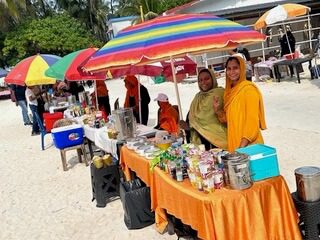
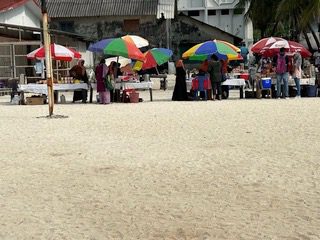
Lakshadweep, an archipelago of 36 islands, serves as the maritime boundary between the Arabian Sea to the west and the Laccadive Sea to the east. It is located 200–440 km off the Malabar coast of India. The smallest union territory in India, it falls under the jurisdiction of the Kerala High Court.
Jeseri, also known as Dweep Bhasha, a dialect of the Malayalam language, is widely spoken here. Derived from the Arabic word ‘Jazari,’ meaning islander. The islands are mentioned in the sixth-century Buddhist Jataka stories.
In the medieval period, the Chera dynasty, then the Chola dynasty, and the Kingdom of Kannur ruled these islands. After the death of Tipu Sultan in 1799, most of the region came under British rule. The Muslim House of Arrakal drove the Portuguese out after they failed to establish Catholicism here. Islam was established in this region in the seventh century.
After India attained freedom, the Union Territory of Lakshadweep was formed in 1956.
After India attained freedom, the Union Territory of Lakshadweep was formed in 1956. Its capital, Kavaratti, is a popular tourist destination with its pristine white sandy beaches and deep blue lagoons.
We got off the rocking, swaying boat that had transported us from the cruise ship to land. Rattling old cabs waited to take us to the island beach area. Agatti has one of the most beautiful lagoons in Lakshadweep.
There is an airport on this island, which sports a tourist complex with all modern amenities. Indian Airlines operates flights to Agatti, making it one of the most accessible islands in Lakshadweep.
As we headed for the beach, we drove past broken-down, empty shanty houses. Not a soul was visible. A sense of desertion and desolation overcame me. Poverty seemed starkly present, lurking somewhere, hiding somewhere. A few half-built stone and villa-type houses lay scattered under construction amongst brick and mortar.
The sun beat down as the glass-bottomed motorboats ran up and down the sea.
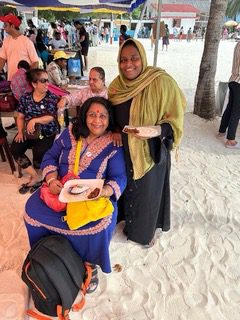
The sun beat down as the glass-bottomed motorboats ran up and down the sea. Where were the lah-di-dah hotels and resorts? Obviously, on some other side of the island.
On this faraway island, a makeshift gate made of coconut fronds and dolphin dwar palikas announced, “Welcome to Agatti.” The tickets we bought on board the cruise ship gave us a snorkelling experience and a glass-bottom boat to see the corals and exotic marine life.
Swimming unselfconsciously were groups of unsmiling tourists. I wondered, were they from our cruise ship? Meanwhile, plastic chairs and a large tent on the beach were all the hospitality the cruise offered. We had remembered to carry drinking water as advised. It saved us from dehydration.
The Lakshadweep dance, song, and music promised on the ticket were nowhere to be seen. A few people sashayed around with bamboo sticks, and some teenagers were trying out some moves. Meanwhile, I was looking forward to sampling exotic crab and lobster dishes at the local restaurants. No such restaurant was to be found!
Hunger pangs got me to walk over to a row of stalls set up by local women. The women spoke fluent English. The percentage of literacy among women on the island is very high.
Bright new hotpots snuggled hot appams.
Bright new hotpots snuggled hot appams. Clean, hygienic, and aroma-filled dry tuna fish dishes to accompany the appams. But for them, we could have gone into glycaemic shock! We quickly packed tuna and octopus pickles.
We also tasted and purchased coconut and jaggery balls artistically wrapped in coconut fronds. The taste reminded me of the Bengali Narkoler Nadu.
Haseena and Tajunnisa, two young women from Agatti, won an international award in 2009 for mobilising local women to protect marine ecological life. Mubassina Mohammed is the first athlete from Lakshadweep to win the long jump gold in national championships.
Minicoy Island is a woman’s paradise. It follows the matriarchal system, and Muslim women are heads of households. They enjoy a degree of freedom that is inconceivable. The islands are scattered miles away from each other. Fishing and agriculture are the main occupations of the people.
Though tuna fishing is done by deploying specially designed mechanised fishing boats, the traditional country crafts and country crafts fitted with outboard motors are also widely used for fishing in Lakshadweep. Over the years, local fishermen used primitive methods for fishing using traditional country crafts.
“You are so lucky to live on this beautiful island,” I exclaimed to the young ladies in traditional hijab. “Yes, it’s so calm and peaceful here,” was the reply in chaste English.
While economic activity through tourism improves business, the calm and peace of ethnic and indigenous people are certainly affected.
While economic activity through tourism improves business, the calm and peace of ethnic and indigenous people are certainly affected. There is something that tourism encourages. That is entitlement. A sense that we are paying, and therefore we can do what we wish.
Hotels and tourist facilities don’t train locals for employment. Outsiders overrun the pristine places and marginalise the local people. Often, women bear the brunt of gender attitudes. Creating conflict and resentment.
The return to the mother boat seemed too soon. We had to get back before sunset. Again, the cabs and the rocking, scary jump into the boat! How powerful is the sea!
The visit was too short. Too soon, we were back on the cruise ship. The next morning, we docked in Mumbai. From the porthole, I could see the Indian Navy’s dockyard and battleships. So here we were at “Zaraa hatke zaraa bachke, yeh hai Mumbai meri jaan!” Chaos gripped us. The hospitable cruise crew was nowhere to be seen. No porters, no thank you.
A bubble burst.
On the jam-packed flight back to Delhi, I looked out of the window. The clouds were below us. From the ocean to the sky. Then, suddenly, it dawned on me that I had been where few people had been.
I had been to Lakshadweep in the Arabian Sea, where my hands had touched my fellow Indian women on a faraway island.
I had been to Lakshadweep in the Arabian Sea, where my hands had touched my fellow Indian women on a faraway island. My tongue tasted the salty tuna and spoke of peace and friendship. My eyes had soaked in the frothy blueness of its sky and the emerald of its sea. In it, I had seen the bed of corals and many coloured creatures in no hurry.
My ears were filled with voices talking and laughing in Jezeri. My skin had bathed in the blue lagoon, and my feet had walked on the white, silvery sand. My nostrils filled with the breath of a faraway ocean, and my head now swam in ecstasy.
I had heard the Divine whistling a happy tune.
As the aeroplane began to descend, Delhi emerged with its twinkling lights and slow-moving traffic, reminding me of the diversity that is my legacy as an Indian. I could see the vast expanse of a concrete city.
A silent prayer went up for the people of Lakshadweep. God protect them from this.
Photos by the author

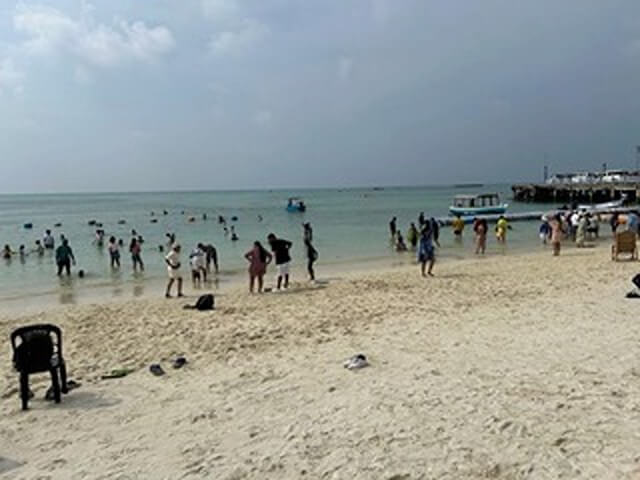



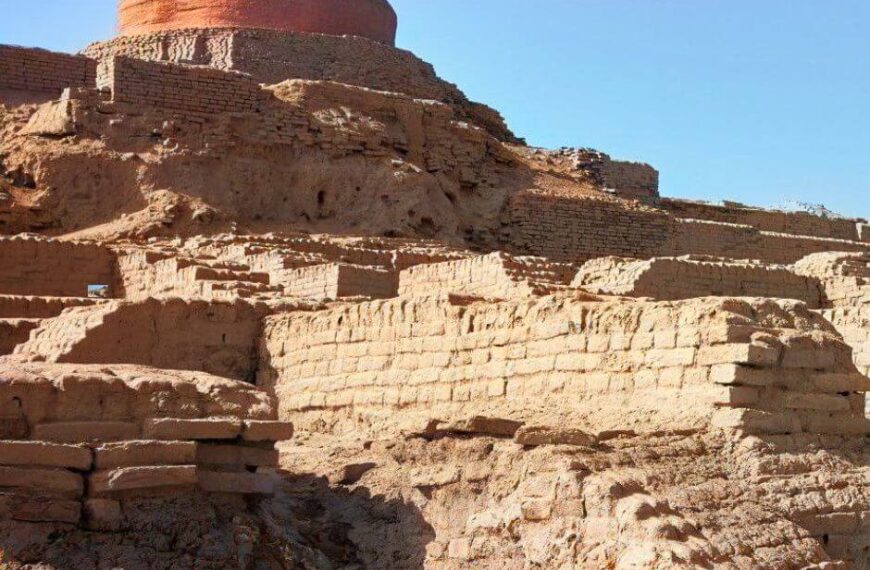
 By
By
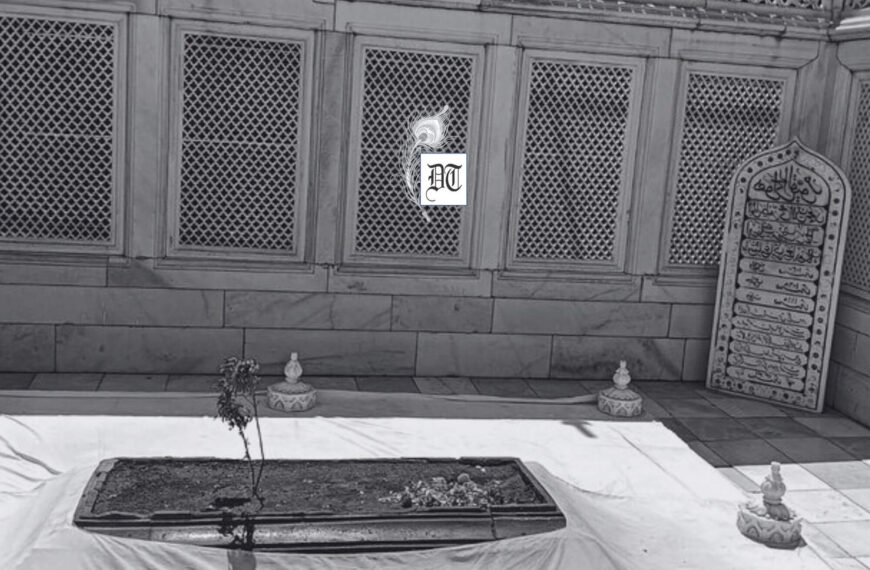
 By
By